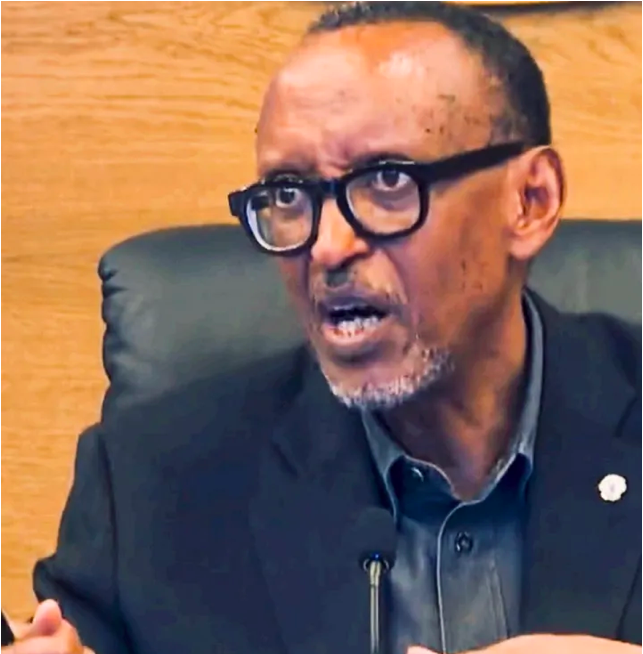In September 2020, the Rwandan strongman, General Paul Kagame publicly declared that the rendering of his critic, Paul Rusesabagina, was a “flawless operation.” During the subsequent two-year diplomatic efforts by the United States government to free Rusesabagina, who is a US permanent resident, the iron-fisted General doggedly refused to budge. In his world, owning his mistakes is not a mark of leadership. Rather than admit he is wrong and cut his losses, Kagame sticks to his guns no matter what. It was therefore no surprise that General Kagame instead hardened his stance on his “flawless operation” stating on 15 Dec 2022, that nobody can “bully us into something to do with our lives and we accept it.”
Fast-forward to March 14, 2023, the Rwandan strongman began to sing a different tune:
“There is a discussion. There is looking at all possible ways of resolving that issue, as you know – even with our history – when we wanted to move on we came to a point where we forgave the unforgivable…I think there is going to be a way forward.”
General Kagame had finally realized that he had walked right into the trap of the US Government’s Robert Levinson Hostage Recovery and Hostage-Taking Accountability Act. The purpose of this Act is “To provide assistance for United States nationals taken hostage or unlawfully or wrongfully detained abroad” which is executed by the Special Presidential Envoy for Hostage Affairs (SPEHA). It is SPEHA that spearheads the process for securing the freedom of American hostages and wrongful detainees held abroad.
Once the US categorized Paul Rusesabagina as a wrongfully detained US permanent resident, the Special Presidential Envoy for Hostage Affairs began the battle for his release. Kagame eventually woke up to the reality that he had met his Waterloo. The only question remaining is: how will the strongman save face? He already answered this question when he stated that there comes a point ‘to forgive the unforgivable.’
Kagame is deploying his well-known tools of silencing the voices of the opposition, and consolidating his totalitarian measures that have turned Rwanda into a nightmare where everyone lives in terror. He accuses the political opposition and human rights defenders of high crimes, imprisons them, and frees them on one condition – leave the Rwandan political space.
The case of Pierre-Célestin Rwigema is a perfect illustration of this phenomenon. Rwigema who was Rwanda’s prime minister from 1995 to 2000, was suddenly accused of genocide crimes and issued an arrest warrant. Rwigema fled to the United States where he was granted political asylum. But once Rwigema agreed to leave Rwandan politics, Kagame declared him innocent. Rwigema returned to Rwanda and was soon handsomely rewarded – Kagame made Rwigema a Rwandan representative in the East African Legislative Assembly (EALA). Stay tuned.
































































